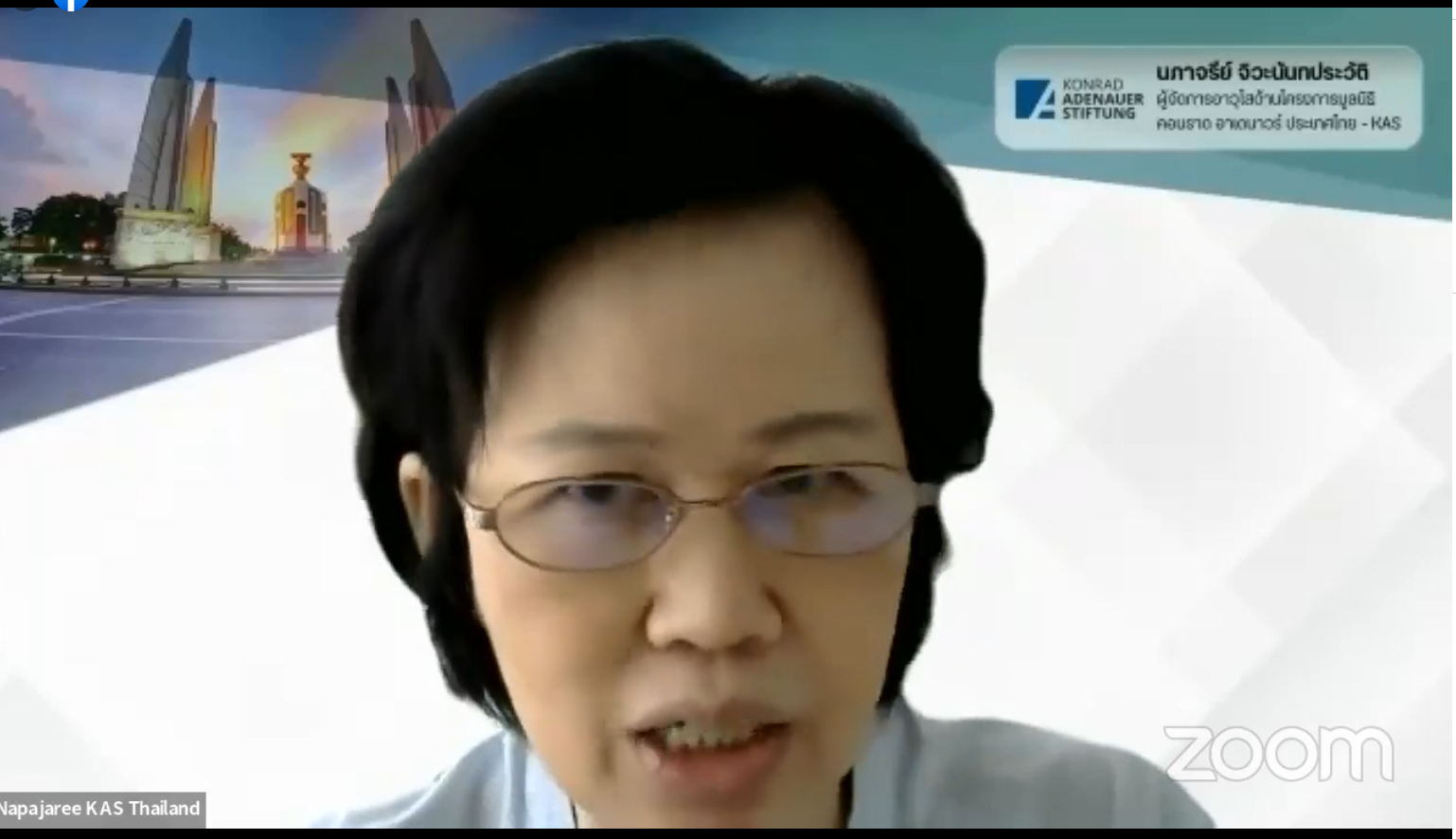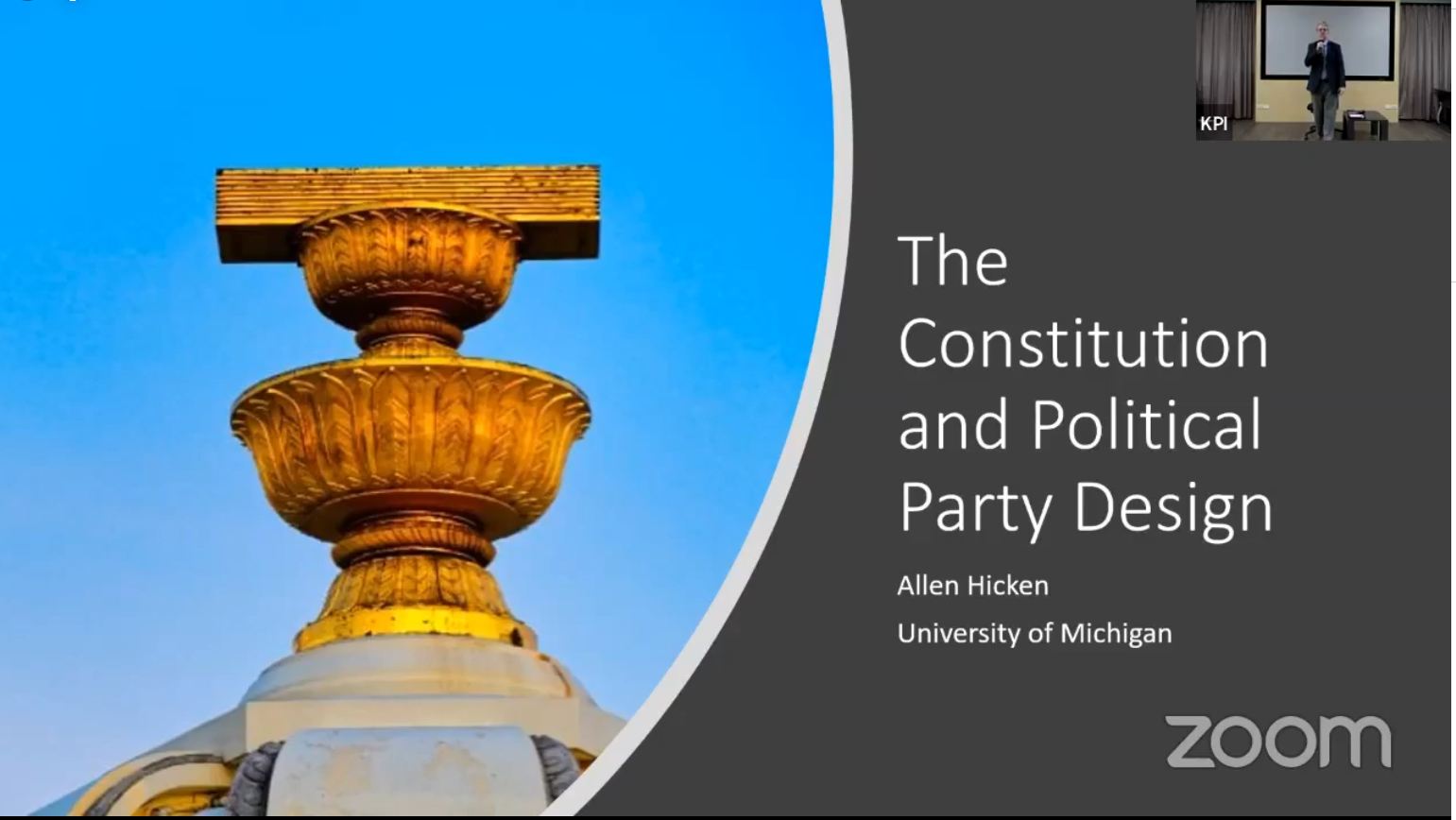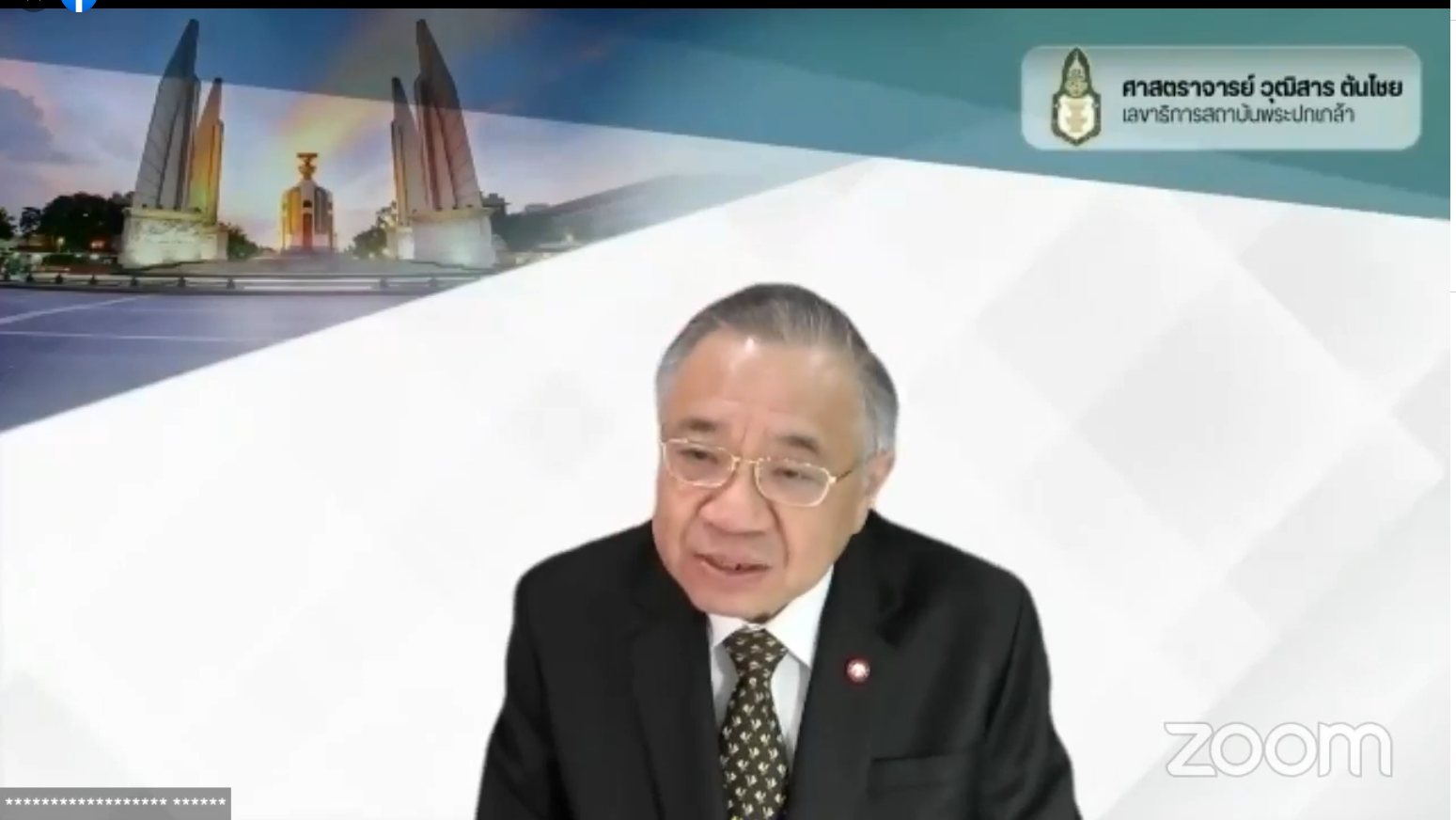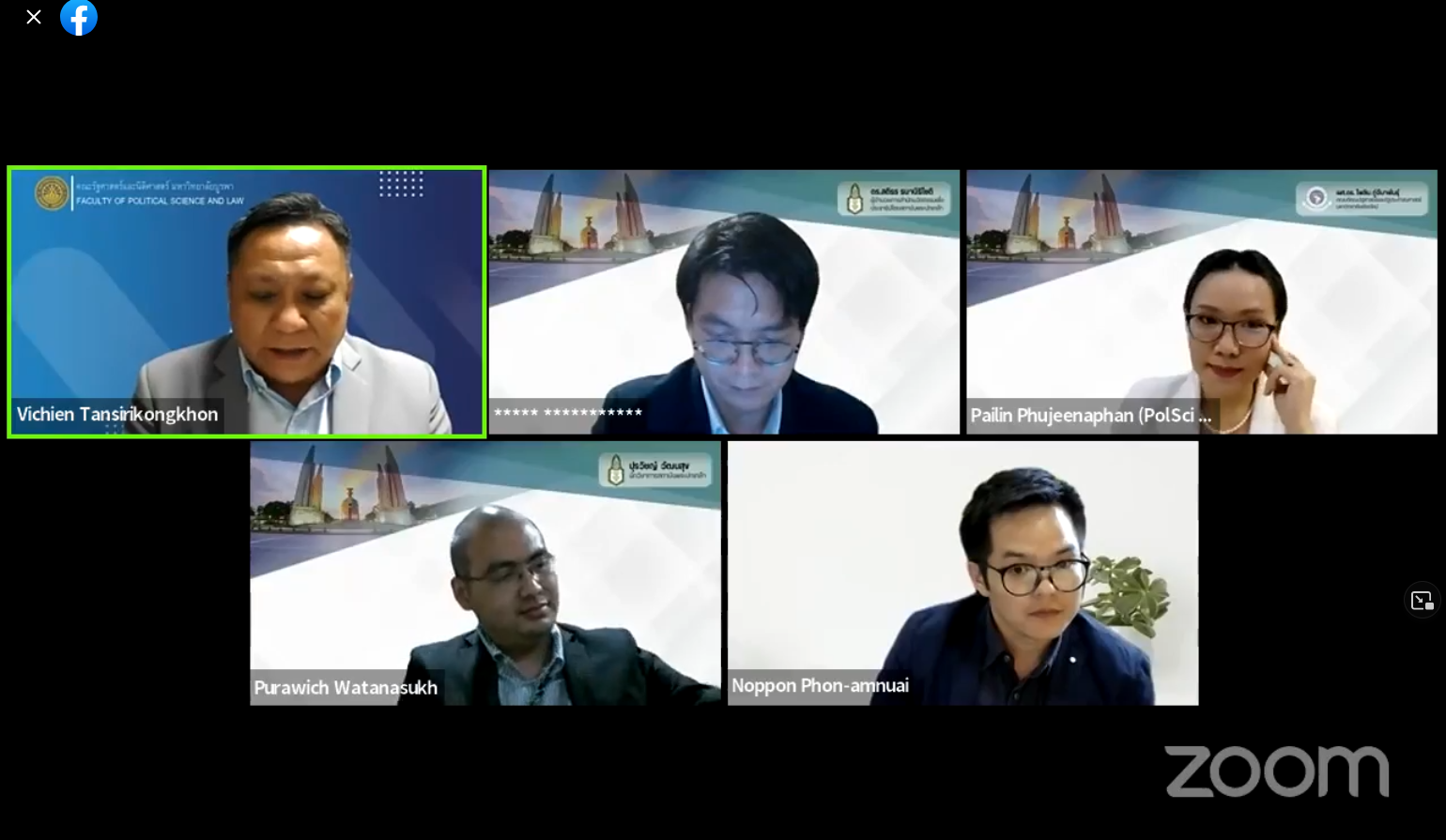In the beginning of the event, Napajaree Jiwanantaprawat from KAS Bangkok, gave her welcoming remarks by pointing out on the importance of constitutionalism, citing an example from Germany. Thereby, the constitution functions as Basic Laws, which guarantee people’s rights with comprehensive language. In this respect, all constitutions and political parties should be accessible citizens and they should equally own the power to demolish political parties via democratic means. Prof. Woothisan Tanchai opened his remarks by thanking all co-organizers for implementing the event. Since its foundation, KPI is aiming to create exchange and open spaces for political developments, including the design of a system that allows political parties to represent the needs of the citizens and can push public agendas for the benefit of society. The opening remarks were followed by keynote remarks from Dr Allen Hicken.
In his keynote presentation, Dr Allen Hicken shed light on the role of constitutions and political parties in Thailand, with an emphasis on different dimensions and why these are relevant. As evidence suggests, strong political parties deliver good policy outcomes and more stable democracies (but also more stable autocracies). The condition of a party system hence affects economic or policy outcomes, for instance in contributing to better economic growth in both democracies and autocracies, more extensive welfare policies or investment in long-term public goods.
Strong parties thereby do not necessarily imply an environment of only a few parties with a strong majority party government, but primarily high levels of cohesion and discipline among parties. This becomes evident in the ability of parties to build strong organizations on the national, provincial and the local level, as well as the strength of their ties to voters. The example of the V-Dem Index shows that, while Malaysia and Japan both own strongly institutionalized parties, the Philippines is one of the countries with the least institutionalized party sectors. Thailand is situated in the middle here, with similarly low institutionalization degrees in the 1980s and 1990s, but a stronger degree in recent decades. Contributing factors to institutionalization are of historical, cultural, societal, or economic nature. Subsequently, Dr Hicken described pathways for building stronger parties, considering different regime types (presidential v parliamentary), electoral Systems (party v. candidate-centered) and party building incentives (degree of power awarded to party leader).
Following Dr Hicken’s presentation, a short question and answer session was conducted. Here, he put emphasis on the importance of campaign funding for party institutionalization. The more candidates need to attract financial resources from outside their parties, the weaker their parties become. Dr Hicken further stressed that if there is only a limited amount of policy approaches, parties find it harder to distinct themselves from others and thus attract less voters. At the same time, the rise of nationalism does not necessarily constitute a problem for party systems per se, but could be problematic for democracy, depending on its concrete content. This at least accounts for inner-party candidates, independent candidates from outside of parties can undermine both party systems and democracy at the same time. After Dr Hicken’s presentation, a roundtable discussion with contributions from five different scholars followed.
Dr Stithorn Thananithichot, in his speech, put emphasis on the role of party leaders, their influence and their high fluctuation. This, as well as lessons from Thai politics of the past, provide a toolkit for institutional reforms of the future in Thailand. Following, Prof. Dr. Vichean Tansirikonkol started his speech by focusing on the weakness of political parties in Thailand of the past. During the last 90 years of parliamentarism, many parties have been dissolved or disappeared, only one has endured. For higher continuity, both an ideological platform as well as adequate resources are needed. Prof. Dr. Philin Phujenapan instead highlighted an evident disconnect of political parties and actors with the beliefs and knowledge of the Thai public, especially in rural areas, during her input. Consequently, strong policies and the involvement of local communities as well as their education are key to address this gap. Moreover, Prof. Noppon Phon-amnuai stressed the role of incentives to strengthen political parties in Thailand. A major shift, proposed by many different parties but not yet implemented, would be concentration at the party level, whereby members depend on their respective party for accessibility and the allocation of resources as part of a deeper institutionalized entanglement. Finally, Prof. Purawich Watanasukh focused on the need for good laws as well as incorporated checks and balances for more stable party systems. Contributing factors here could be a diverse set of independent organizations or the setup of suitable electoral systems. The German system could serve as a role model here, including required transparency about financing sources as well as high amounts of public funding for political parties. The event was rounded-off by a closing ceremony, which summarized and connected all the speakers’ contributions. One key takeaway is that the evolution and development of a political party should occur naturally, not in a forceful manner. Political Parties should therefore pursue a people-centred design.











